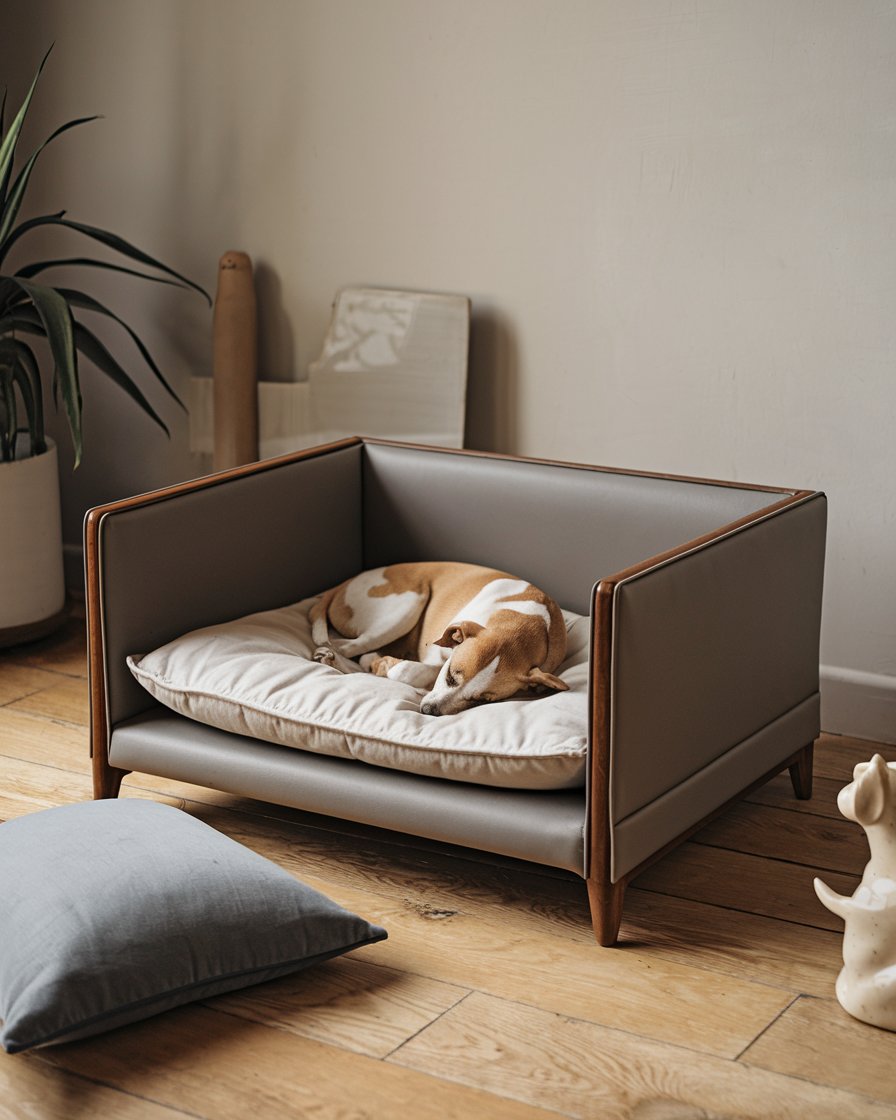Sleep is vital for pets, impacting their physical health, emotional balance, and overall happiness. Like humans, pets experience different sleep stages that help them recover energy, process emotions, and heal their bodies. Yet, many pet owners overlook the importance of their furry friend’s sleep quality.
Understanding the science behind pet sleep allows you to create an environment that supports their well-being. In this post, we’ll explore how pets sleep, why it matters, and how you can help them rest better.
The Anatomy of Pet Sleep
- Light Sleep
This stage is where pets spend much of their rest time. During light sleep, they’re semi-alert and ready to wake at any moment. You might see their ears twitch or notice their breathing slow slightly. - Deep Sleep
In this restorative stage, their body repairs tissues, boosts immunity, and releases growth hormones. Deep sleep is particularly important for young pets and those recovering from illness or injury. - REM Sleep
REM (Rapid Eye Movement) is the dream stage. Pets twitch their paws, wag their tails, or make quiet noises as their brains process memories and emotions. This stage is essential for mental rejuvenation.
Pets cycle through these stages multiple times each night, but disruptions can prevent them from entering the deeper, more restorative phases.
How Much Sleep Do Pets Need?
The amount of sleep pets require varies based on their species, age, and lifestyle:
- Dogs: Average 12–14 hours per day, with puppies needing up to 18–20 hours.
- Cats: Sleep experts, cats rest for 12–16 hours daily, often in short bursts.
- Senior Pets: Tend to sleep more as they age, often needing additional rest to recover energy.
Signs Your Pet May Not Be Sleeping Well
- Frequent Wake-Ups: Restless movement or interruptions during sleep.
- Daytime Fatigue: Lethargy or lack of enthusiasm for play and interaction.
- Behavioral Changes: Irritability, barking, or avoidance behaviors.
If you notice these signs, it’s time to assess their sleep environment and habits.
The Health Benefits of Quality Sleep
- Boosts Immune Function
Sleep strengthens the immune system, helping pets fight off illness and recover faster from injuries. - Supports Cognitive Function
REM sleep aids memory consolidation, learning, and emotional processing. - Improves Mood and Behavior
Well-rested pets are generally happier, calmer, and more responsive to training. - Promotes Physical Recovery
Deep sleep helps repair muscles and joints, making it especially important for active or aging pets.
Factors That Affect Pet Sleep
- Environment
- Noise, light, and temperature can all disrupt a pet’s rest.
- Ensure their sleep area is quiet, dark, and comfortable.
- Anxiety and Stress
- Thunderstorms, separation, or unfamiliar surroundings can lead to restlessness.
- Calming tools like sound therapy can help reduce stress.
- Health Issues
- Conditions like arthritis, obesity, or cognitive dysfunction can interfere with sleep.
- Regular check-ups with your veterinarian can help address these concerns.
How to Improve Your Pet’s Sleep Quality
- Provide the Right Bed
A comfortable bed is key to restful sleep. Look for options that:
- Support Joints: Memory foam or orthopedic materials reduce pressure points.
- Promote Calm: Features like SonaNest’s sound therapy and gentle vibrations create a soothing environment.
- Match Their Size: Ensure the bed is the right size for your pet to stretch out comfortably.
- Set a Consistent Routine
- Regular feeding, exercise, and bedtime schedules help regulate your pet’s internal clock.
- Avoid late-night play or feeding to encourage winding down.
- Create a Sleep-Friendly Environment
- Minimize Noise: Use white noise machines or soundproofing to block out disturbances.
- Control Light: Dim lighting or a cozy, enclosed bed can make them feel more secure.
- Adjust Temperature: Ensure their space is not too hot or cold, especially for breeds sensitive to temperature changes.
- Incorporate Calming Tools
- Sound Therapy: Subsonic sounds, available in SonaNest beds, mimic soothing natural frequencies.
- Aromatherapy: Pet-safe scents like lavender can help create a calming atmosphere.
Why Technology is Transforming Pet Sleep
Modern advancements, like smart pet beds and activity trackers, offer insights into your pet’s sleep patterns. SonaNest combines sleep-enhancing features with built-in sensors, allowing you to monitor rest cycles and identify potential disruptions.
Final Thoughts
Sleep is a fundamental part of your pet’s health and happiness. By understanding how they sleep and taking steps to improve their rest, you’re contributing to their long-term well-being.
At SonaNest, we’re committed to providing tools and insights that help pets—and their owners—sleep better, live healthier, and enjoy more peaceful days.





 No products in the cart.
No products in the cart. 